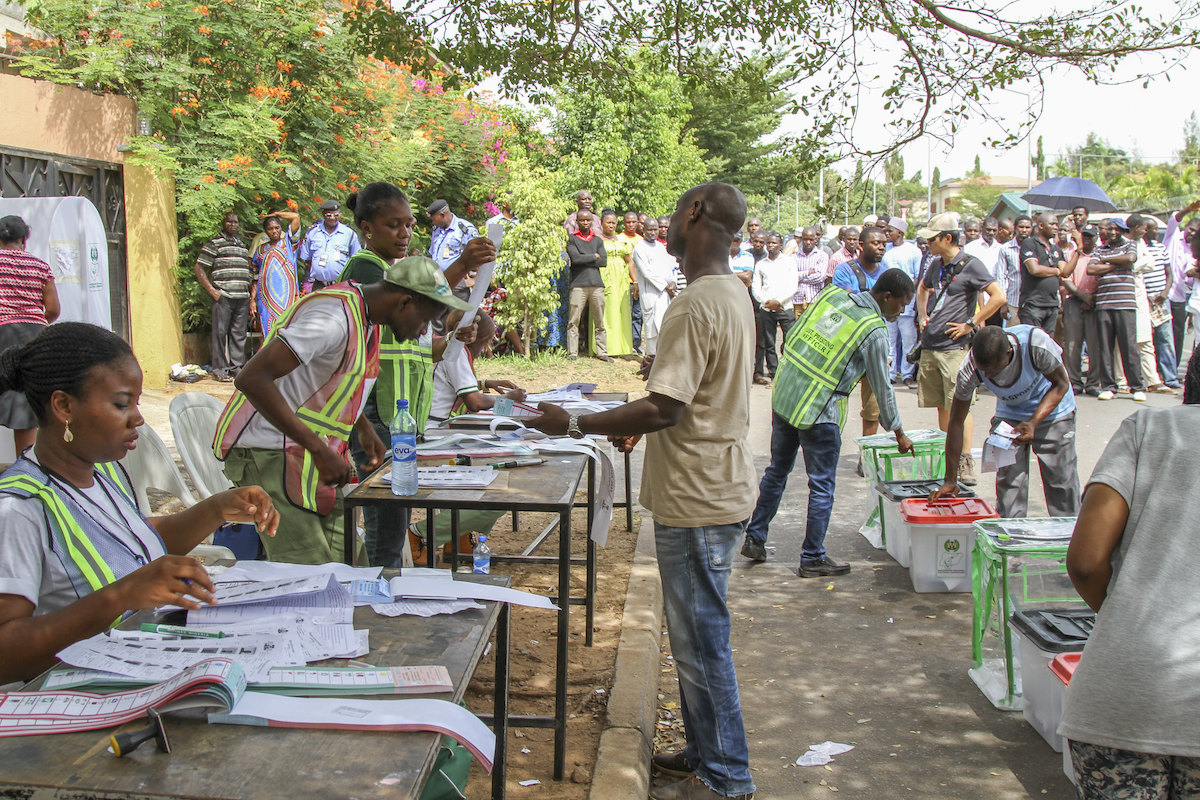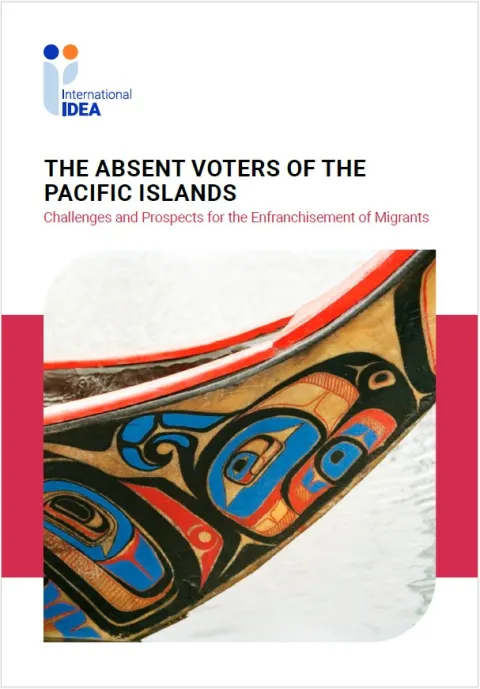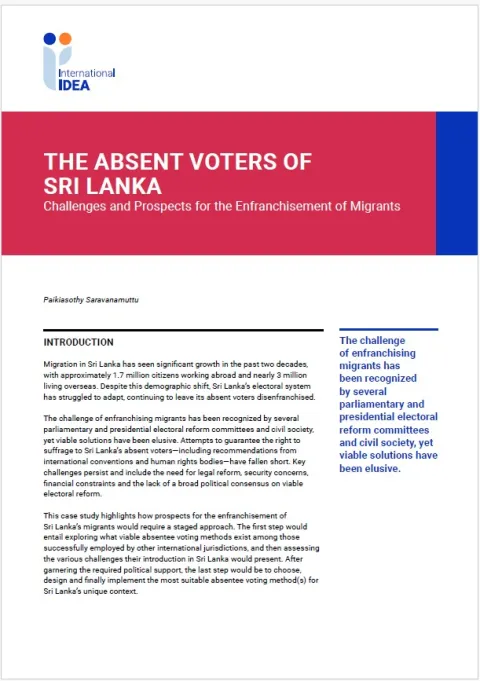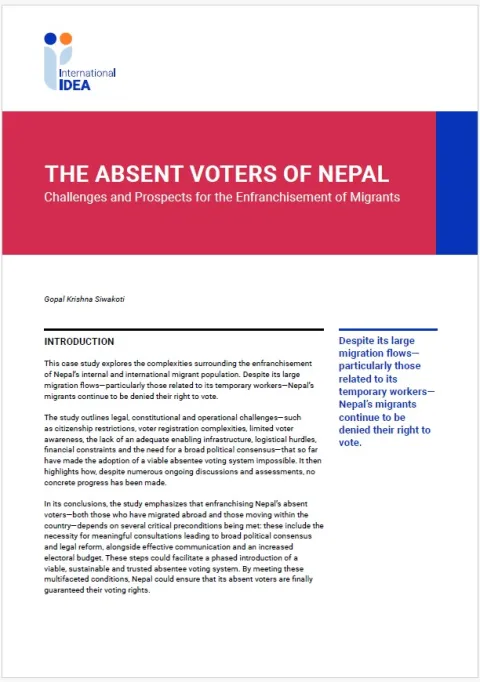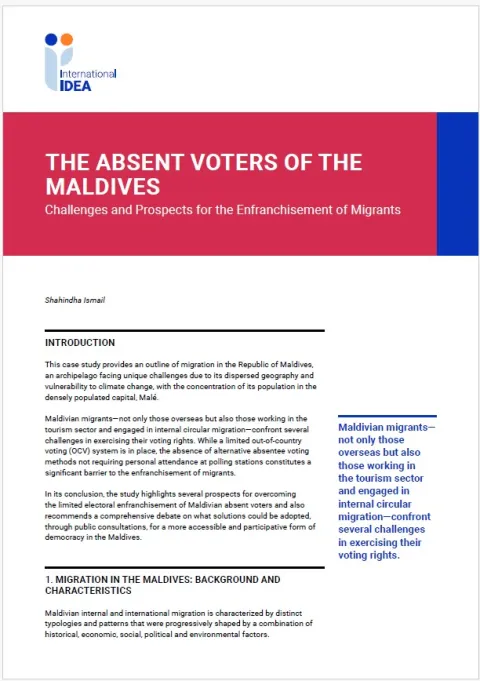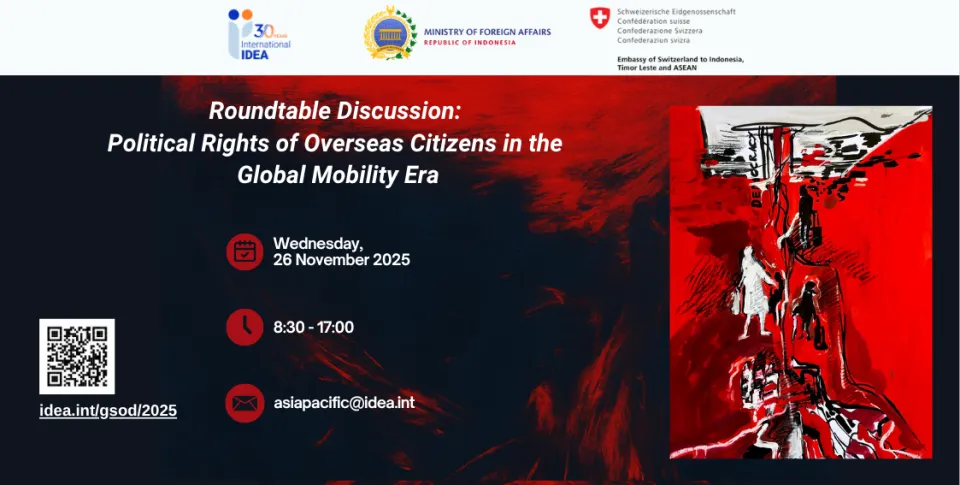The Absent Voters of Pakistan
Pakistan’s history and geographic location have made it a major migration hub. From the mass movements triggered by partition to ongoing internal and international population flows, migration has shaped—and continues to shape—the country’s political, social and economic landscape.
This case study explores the multifaceted drivers of Pakistan’s migration, spanning from economic conditions and climate change to political instability and conflict. The study concludes by highlighting several prospects for making Pakistan’s electoral processes more inclusive and participatory.
This paper is part of a series of eight case studies on absent voters in Afghanistan, Bangladesh, Bhutan, India, the Maldives, Nepal, Pakistan and Sri Lanka.
Details
Contents
Introduction
1. Pakistan’s migration: Context and characteristics
2. Drivers of migration within and outside Pakistan
3. Status of the electoral enfranchisement of Pakistan’s absent voters
4. Challenges for the electoral enfranchisement of Pakistan’s migrants
5. Prospects for the electoral enfranchisement of Pakistan’s migrants
Abbreviations
References
About the author
About this series
Give us feedback
Do you have a question or feedback about this publication? Leave us your feedback, and we’ll get back to you
Send feedbackThe Absent Voters of Pakistan
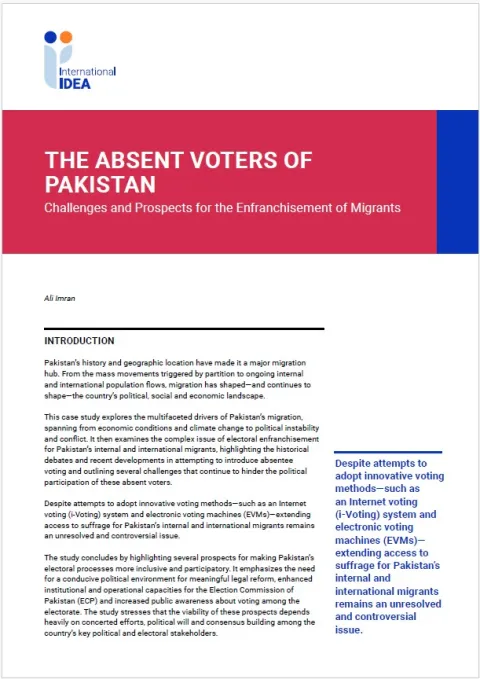
| Total views | 1245 |
|---|---|
| Downloads | 15 |
| Rating |
Give us feedback
Do you have a question or feedback about this publication? Leave us your feedback, and we’ll get back to you
Send feedback